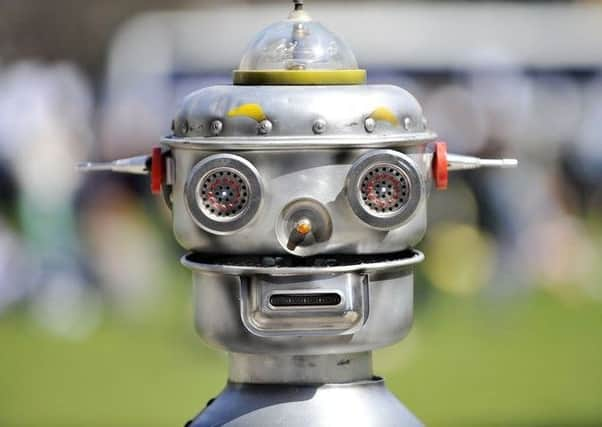Automation to affect two in five


The Confederation of British Industry says technology will replace some occupations but, also, will bring new and more technical jobs.
New ONS data shows that 59,000 jobs in Lancaster, measured in 2017, could be partially or totally replaced by machines over the coming years.
That’s 46 per cent of the occupations in the area.
Advertisement
Hide AdAdvertisement
Hide AdOf them, 68 per cent were at medium risk, which means the probability of them being replaced by machines is between 30 per cent and 70 per cent.
The threat was low for a further 24 per cent of jobs.
An ONS spokesperson said: “It is not so much that robots are taking over, but that repetitive tasks can be carried out more quickly and efficiently by an algorithm or a machine.
“The risk of automation tends to be higher for lower-skilled roles for this reason.”
Felicity Burch, the CBI’s director of innovation and digital, said technology is predominantly putting jobs held by women, and low-skilled occupations, at risk.
Advertisement
Hide AdAdvertisement
Hide AdShe said: “The picture is complicated, as ONS’s own analysis shows that some of the roles most at risk of automation saw a boost in recent years.
“Furthermore, we know that the more businesses invest in new technology, the more likely they are to create new roles.
“If we are to capture the benefits, there are two fundamental things to get right – encouraging further investment and making sure that people have the digital skills they need to get the new jobs that the future will bring.”
The ONS analysed the jobs of 20 million people across England in 2017 and found that 7.4 per cent were at high risk of being replaced.
Advertisement
Hide AdAdvertisement
Hide AdAnd 70 per cent of the roles at high risk of automation are currently held by women.
People aged 20 to 24 are most likely to be at risk of having their job replaced, and low-skilled occupations, like waiting or shelf stacking, face the highest risk.
Jobs requiring higher qualifications, such as medical practitioners and higher education teachers, are less susceptible to computerisation.